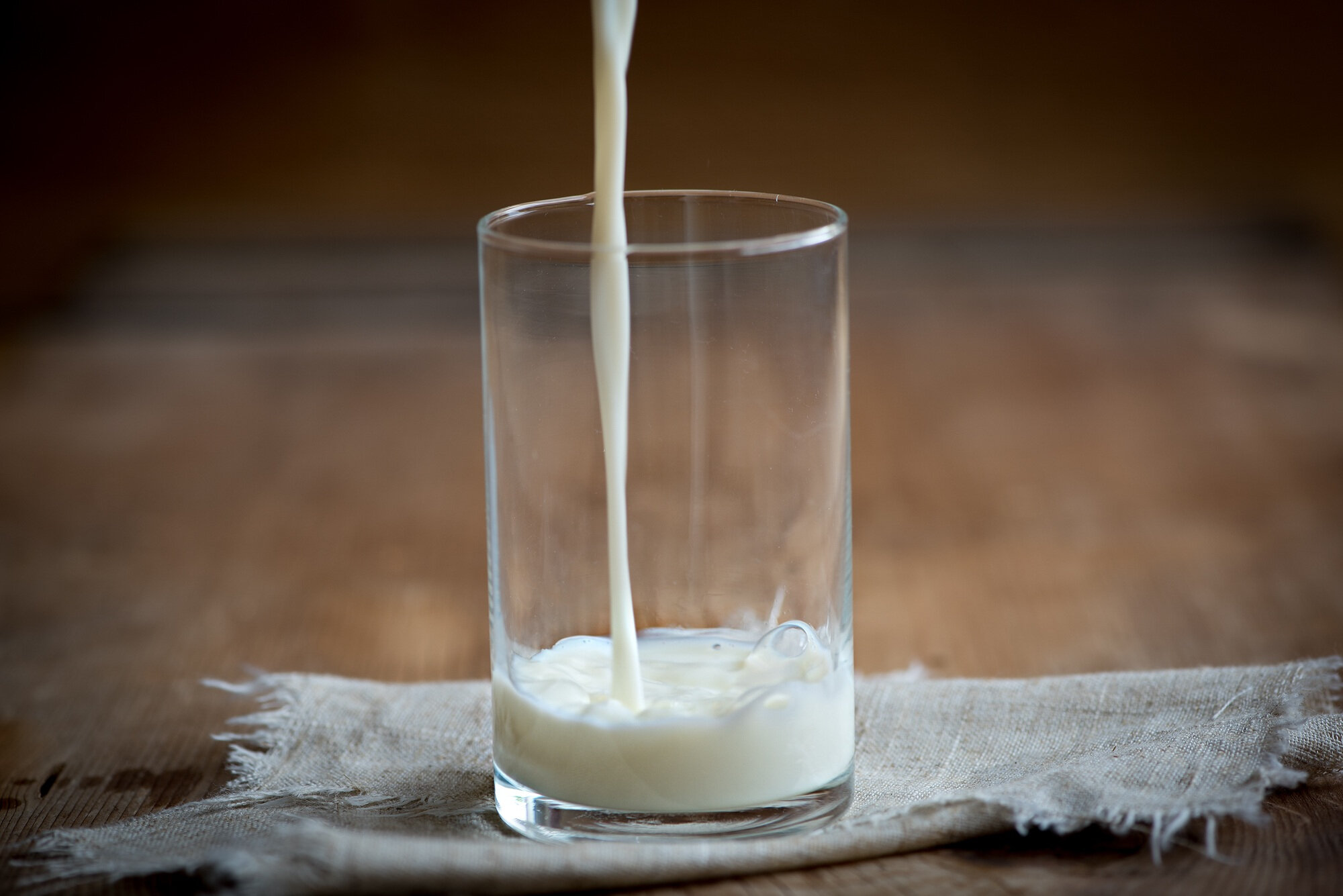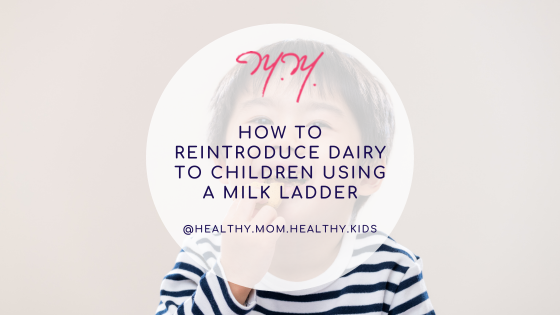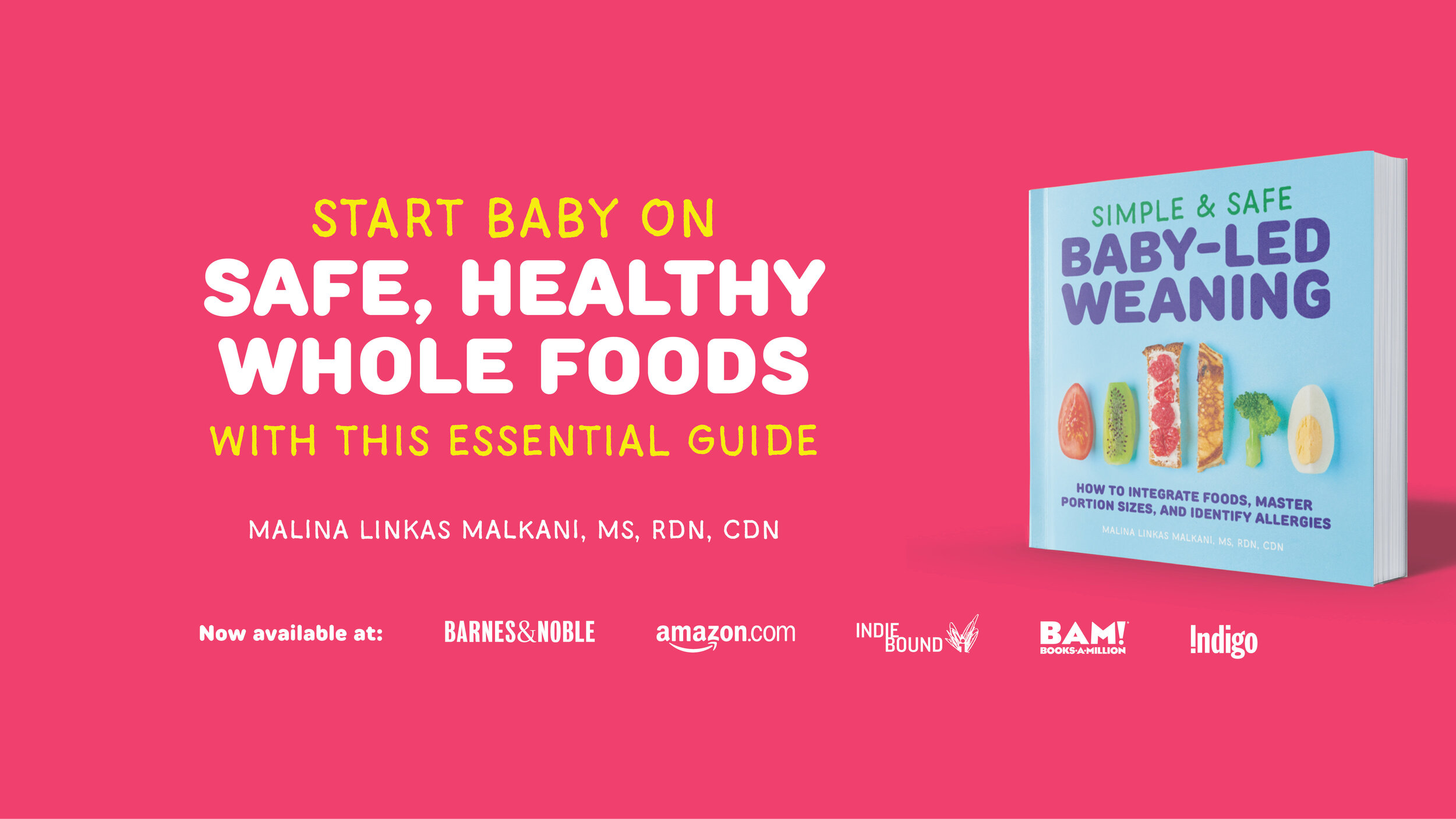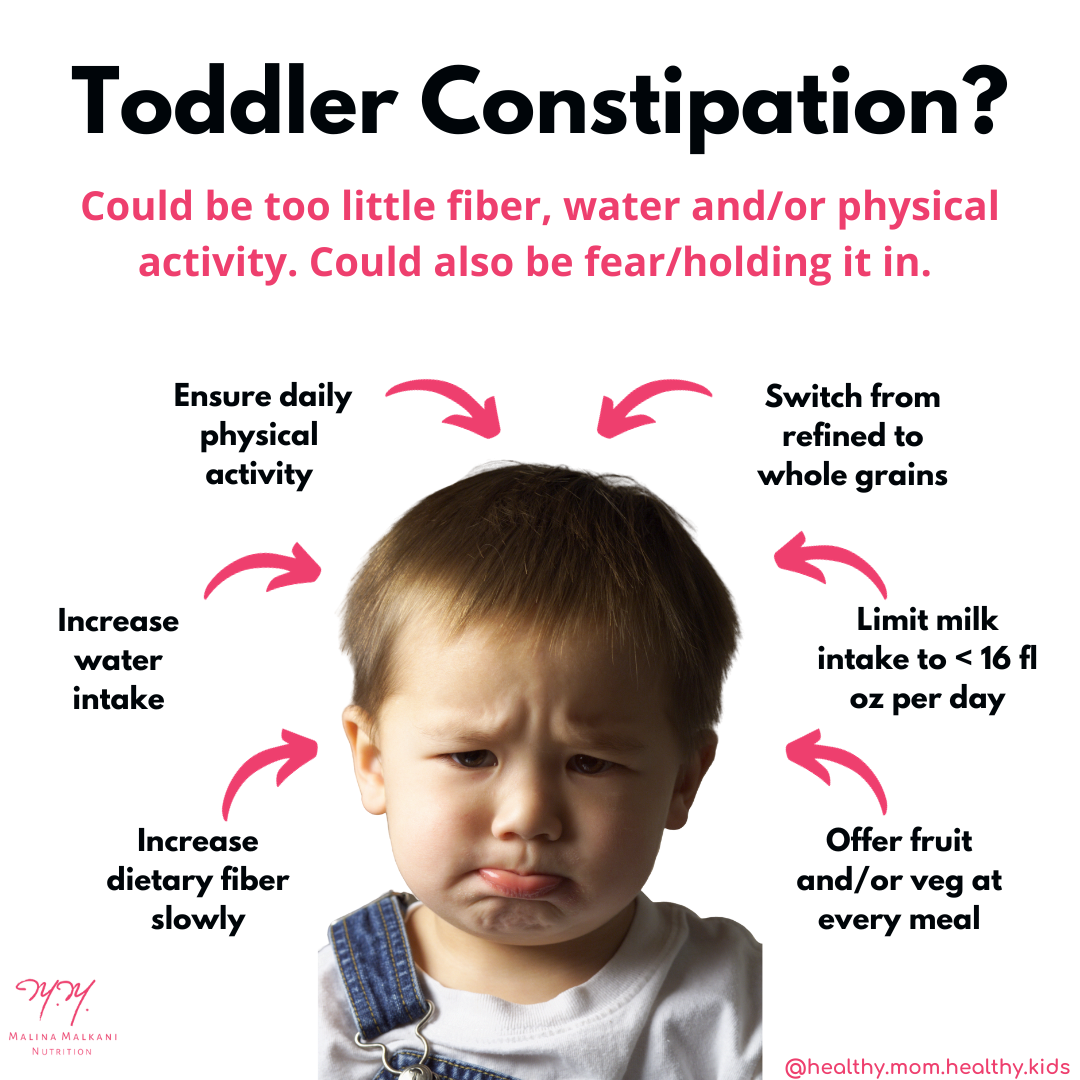Best Milk for Kids: Choosing the Right Milk for Your Child
Choosing the right milk for your child can be challenging, given the growing focus on plant-forward living and the many available types of cow’s milk and non-dairy alternatives on the market these days.
Cow’s milk itself is a hotbed of nutrition myths, misconceptions, and misinformation. Even the word “milk” is currently the subject of great debate among industries that disagree over which beverages should be able to put the word “milk” on their label.
My goal with this blog post is to help you understand the pros and cons of each option so that as a parent or caregiver, you can make an informed choice that best suits your child's nutritional needs.
Read on, and we’ll explore the best milk options for kids and the differences between cow's milk and plant-based alternatives like soy, almond, oat, and pea protein milk.
Whole Milk for Kids
Cow's milk has been a staple in children's diets for generations. The truth is, I would feel lost without whole cow’s milk each day in my morning coffee and a cup, warm or cold, before bed. Yes, whole!
As a registered dietitian and nutrition expert who believes in the health and environmental benefits of a plant-forward lifestyle, I love that many plant-based milk options are available. I use many of them regularly myself and sometimes buy nondairy milks for my kids. Yet, for many years now, I almost always have a gallon of whole cow’s milk from a local farm in my fridge at any given time and offer my children full-fat dairy products.
From a nutrient standpoint, cow’s milk is a good milk for kids and offers a well-balanced blend of macronutrients (high-quality protein, carbohydrate, fat), nine essential nutrients, and no added sugars. It is rich in calcium and vitamin D, which are crucial for a child's growth and development.
Whole milk for toddlers is an excellent choice as the fat content benefits brain development and energy. It can also be a source of healthy calories for kids struggling with weight gain or picky eating - though be careful not to offer more than about 16 ounces per day to help prevent iron deficiency anemia.
Emerging research also supports potential increased vitamin D absorption in whole milk. Vitamin D is a fat-soluble vitamin, meaning it needs fat to be absorbed by the body. Whole milk provides not only the vitamin D but also the nutrient that helps the body absorb it.
Fat is also a satisfying nutrient. Even though the American Academy of Pediatrics (AAP) has long recommended that children over the age of 2 and those at risk for overweight and obesity are given low-fat or skim dairy products, recent studies have found that low-fat cow’s milk intake is associated with higher body fat and BMI levels in children compared with those who drink full-fat milk. This may be because higher fat content helps satisfy the appetite and reduces excess eating.
Some parents worry about the use of hormones in conventional dairy products. The Food and Drug Administration (FDA) has evaluated these concerns, and research shows that the hormone bovine somatotropin (bST) is safe for both cows and human consumption of cow’s milk.
Is raw cow’s milk safe for kids?
Raw cow’s milk has not undergone pasteurization, which involves heating milk to kill harmful bacteria and pathogens. Raw milk proponents argue that it retains more natural nutrients and enzymes than pasteurized milk. Some people also prefer the taste of raw milk and find it more flavorful.
However, raw milk can be very dangerous as it may contain harmful bacteria such as E. coli, Salmonella, and Listeria, which can cause serious illnesses. Given that the potential risks far outweigh any purported benefits, raw milk for kids or adults is not recommended. If ingested, watch for symptoms of foodborne illness, including diarrhea, vomiting, and fever.
Plant-Based Milk Alternatives for Kids
You might want to choose plant-based milk (such as nut milk) for your kids for various reasons, which include values, dietary preferences, and individual circumstances. For example, families following a vegan lifestyle avoid animal products in their diets, including cow's milk. Cow’s milk is unsuitable for kids with cow’s milk protein allergies, and it may not work for those with lactose intolerance either.
If you are concerned about the ethical treatment of animals and the environmental impact of dairy farming, plant-based milks can help with these concerns, as they generally have a lower carbon footprint and don't involve animal agriculture.
Some children may prefer the taste and texture of a plant-based milk taste over cow's milk. The variety of plant-based milk options allows parents to find one their child enjoys.
It's important to note that while some plant-based milks can be a suitable replacement for cow's milk in many cases, some are not. If your child doesn’t drink cow’s milk, it’s important to choose a suitable fortified plant-based milk replacement and/or offer other sources of key nutrients, including calcium, vitamin D, and protein.
It is also important to note that plant-based milks are not a suitable substitute for breast milk or formula during the first year of life. Infants need the specific nutrients in breast milk or formula for proper growth and development. It is okay, however, to have plant-based milk baked or mixed into recipes on occasion.
Do your best to check labels when picking a milk as many plant-based milks contain added sugars to enhance flavor. Choose unsweetened, plain varieties, especially for toddlers. If you’re curious about why added sugars are recommended during infancy and toddlerhood, be sure to read this post.
Some commercially produced plant-based milks may contain additives like thickeners or preservatives. Checking the ingredient list can help you choose a product with minimal additives.
As always, consult a pediatrician or a registered dietitian for help making informed choices when using plant-based milk to meet their child's nutritional needs.
Soy Milk for Kids
Soy milk is a popular plant-based alternative to cow's milk made from soybeans. Plain, unsweetened fortified soy milk for toddlers is an excellent option if the child has a cow’s milk allergy, as it offers a nutrient profile very similar to cow’s milk.
Soy milk is naturally high in calcium and is fortified with important nutrients like vitamin B12 and vitamin D, making it a great choice for children. It also offers a complete protein source, containing all nine essential amino acids our bodies cannot produce independently.
Soy protein may also have heart health benefits, and it is associated with lower cholesterol levels and a reduced risk of heart disease.
Keep in mind that soy is a common food allergen. While soy milk is a good alternative for those without soy allergies, individuals with soy allergies should explore other milk alternatives.
Some soybeans used in soy milk production may be genetically modified. While the FDA has noted that genetically modified organisms (GMOs) are safe for consumption, if you prefer non-GMO options, look for soy products labeled as organic or non-GMO.
Almond Milk for Kids
Almond milk is a nut milk free from dairy and soy, making it a popular dairy milk alternative, especially for those with dairy and soy allergies. It has a fairly neutral to slightly nutty flavor compared to cow’s milk. While almond milk is okay to drink every once in a while after one year of age, it is not recommended for young children as an alternative to cow’s milk for a few reasons.
Almond milk is generally much lower in protein, calories, and fat than cow's milk. While it often contains added vitamins and minerals (such as calcium and vitamin D), almond milk for toddlers is not recommended, as complete proteins and fat are crucial for their growth and development.
Almond milk is also not the most environmentally friendly plant milk choice because it requires a substantial amount of water to produce.
Alternatively, because almond milk is mostly water, it is lower in calories and sugar than most other plant-based milks and as kids grow out of toddlerhood, it can be helpful with hydration.
Keep in mind that tree nuts are one of the nine most common food allergens. If you haven’t introduced your little one to tree nuts, be aware when you offer almond milk for the first time that almonds are among the top nine allergens responsible for over 90% of food allergies. In my online baby-led feeding course for parents, based on my best-selling BLW book, I walk you through introducing top allergens and other solid foods using a baby-led approach.
Oat Milk for Kids
Oat milk has a slightly sweet and mild flavor; it has gained popularity recently as a plant-based alternative milk for kids and toddlers. Oat milk for toddlers can be a suitable option for those children with cow’s milk and soy allergies, but similar to almond milk, there are some factors to consider, particularly in regard to protein needs.
Oat milk is often fortified with vitamins and minerals, such as calcium and vitamin D, to make it a more nutritionally balanced option; however, it typically contains less protein than cow's milk. It has a caloric profile similar to cow’s milk and generally has more calories than most other plant-based milks.
Oats are also a good source of dietary fiber, which is helpful, especially if your child deals with constipation. Some of this fiber may be present in oat milk, however, the exact amount can vary between brands.
Oats also contain beta-glucans, a type of soluble fiber that may help lower cholesterol levels and promote heart health. While the levels in oat milk may not be as high as in whole oats, they can still contribute to heart health.
Oats generally have a lower environmental impact than other plant-based milk alternatives, such as almond milk, which requires a significant amount of water to produce.
Pea Protein Milk for Kids
Pea protein milk is a plant-based milk alternative that is derived from yellow peas. There are several benefits of pea protein milk for toddlers to consider if you are choosing an alternative milk source.
Pea protein milk is generally higher in protein than other plant-based milk alternatives and is considered a complete protein. Many commercially available pea protein milks are fortified with essential vitamins and minerals, such as vitamin D and calcium, to make them more nutritionally comparable to cow's milk and a good alternative milk source for children with dairy and soy allergies.
The production of pea protein may have a lower environmental impact compared to some other plant-based milk alternatives. Peas are nitrogen-fixing plants, which means they can help improve soil quality. Pea protein milk also requires less water and produces fewer greenhouse gas emissions than cow’s milk.
One downside to pea protein milk is that it can be expensive compared to cow’s milk and other plant-based milks. Some individuals may also experience gastrointestinal discomfort, such as bloating or gas when consuming pea protein because of the fermentation of legumes in the gut. Be sure to monitor your child’s response after drinking.
How to Choose the Right Milk for Your Child
To find the best milk for your toddler, consider their specific nutritional needs and any dietary restrictions or allergies they may have. When I work with clients one-on-one in my private practice, I counsel people to consider cow’s milk and plant-based milk alternatives as a matter of nutrient needs, taste preferences, food sensitivities, and allergies.
According to the North American Society for Pediatric Gastroenterology, Hepatology, and Nutrition, “almond, rice, coconut, hemp, flax seed, and cashew ‘milks’ are inappropriate replacements for cow’s milk in toddlers and young children for whom milk remains an important part of the diet” as they have “inadequate nutrient profiles to meet needs for protein, calcium, and vitamin D.”
“Pea milk, and possibly oat milk, may be more reasonable plant-based milk alternatives for young children requiring a cow’s milk and soy alternative” depending on the specific “calorie, protein, vitamin, and mineral contents, and the bioavailability of fortified nutrients” including Vitamin D and calcium.
Some parents have opted for a combination plant-based milk, such as the popular Silk Protein Nut Milk for kids (which is fortified with calcium and offers 10 grams of protein and 8 grams of fat per cup) made with almond, cashew, and pea protein, to help ensure their kids get adequate nutrition.
For many people (including me), full-fat dairy fits nicely into the context of a primarily plant-forward diet. The key is considering the diet in its entirety and deciding which type of milk best fits your needs and those of your family.
For example, if your daily diet is high in sources of saturated fats like beef, bacon, and butter, whole milk is probably not a wise choice because it tips your saturated fat intake into a less-than-optimal range. If you eat mostly plants, your saturated fat intake is likely lower, leaving more room for the saturated fat content in full-fat dairy products.
I love helping people achieve a balanced, mostly plant-based nutrition lifestyle that is satisfying, delicious, and convenient. The right balance for my family and me is about 70-80% plant-based, with the remaining 20-30% made up of dairy, seafood, poultry, and occasionally a little red meat.
Ultimately, the best milk for kids depends on the child’s diet and their needs and preferences. For further guidance and detailed information on other plant milks including coconut milk, flax milk, and sesame milk as well as choosing a milk for your little ones, check out my e-guide on choosing the right milk for your kids and family.
For more tips on feeding kids, check out my FREE guide to reducing picky eating or enroll in my online course, Solve Picky Eating, which includes 12 self-paced short video lessons, downloadable guides, and checklists to support your journey of navigating picky eating.







